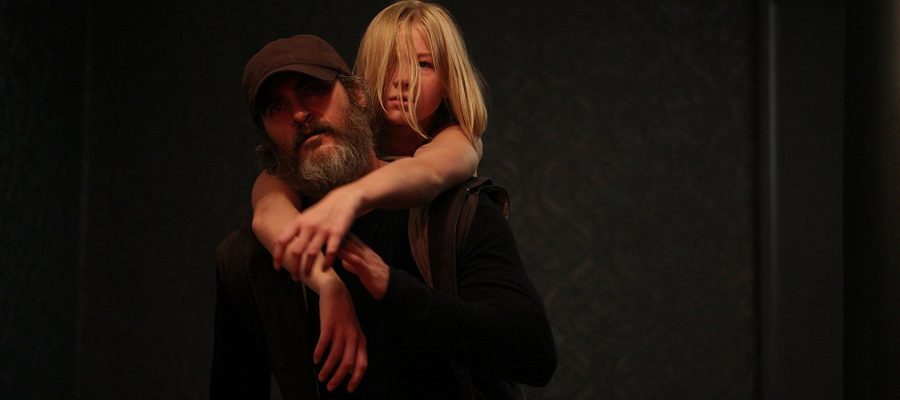Review: 'You Were Never Really Here' Is an Incredibly Crafted Modern Drama

Sam Reynolds ’18 / Emertainment Monthly Staff Writer
Subversion of story structure is becoming increasingly common in today’s film environment. Formulas have become too expected in an age of online over-analysis and unpredictable current events. Recent blockbusters such as the fantastic Blade Runner 2049 and indie-favorites like A24’s Good Time are both examples of films that bend over backward to avoid predictability. Instead, these movies opt to mirror the disappointment and chaos that would more likely occur if a real person ended up in a scenario that kickstarted a story, rather than reacting like a film character would. It’s a style that’s popularity is proving to test filmmakers and audiences alike.
Lynne Ramsay’s You Were Never Really Here is the latest to embrace an absolute unpredictability more likely to occur in reality, and the very real damage people endure that never seem to have a simple solution if any. The result is a film that paints a vivid picture of broken souls trying to survive a broken world and one that leaves the audiences in shock and awe at every turn. It also just might be the best release of 2018 thus far.

You Were Never Really Here is a remarkably constructed film. The visuals are subtly stylized to convey a grim image the New York City underworld, the camerawork often feels claustrophobic and overwhelming—allowing the audience to feel a small portion of the dread Joe struggles through every day—and the sound design always has you shocked and on-edge. Visual cues to given to give the audience just enough information to piece the main points of the film together, and the “story” remains completely character-driven from start-to-finish. From the opening close-ups to the emotionally surreal finale, the audience is uncompromisingly situated in the perspective of the film’s damaged protagonist.
This is largely due to Phoenix’s transcendent performance. The actor is known to go to great physical and physiological extremes to fulfill his work, and he is no different in You Were Never Really Here. His Joe is bulking and intense—haunted by past childhood and war trauma and skilled with any weapon he can get his hands on. It is a remarkably physical and jagged performance that Pheonix uncompromisingly brings to life. By his side is relatively new but exceptional Samsonov—who plays the equally damaged Nina like a hollow shell with little glimpses of life beneath the surface. Both actors portray misery and emotional stuntedness so believable that the audience may try to turn away from the thought of the terrible experiences the world has put them through.

But still, pain exists everywhere in You Were Never Really Here, and the depictions of that pain will linger long after you leave the theater. You Were Never Really Here is an undoubtedly necessary approach to cinema by the amazingly talented Lynne Ramsay. It’s time there are more films of its kind.
Overall Grade: A
Watch The Trailer:
[embedyt] https://www.youtube.com/watch?v=R8oYYg75Qvg[/embedyt]